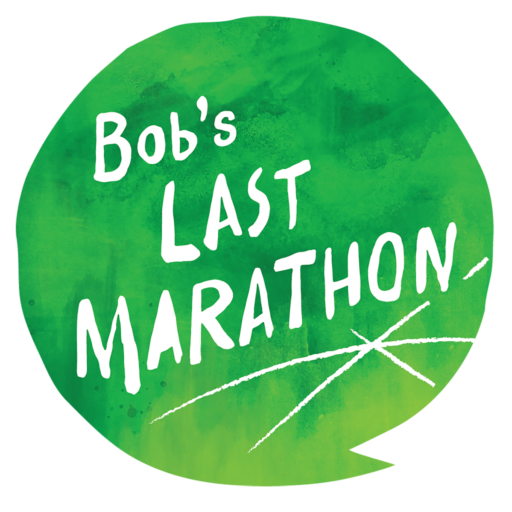Transcript
Still Bob
When the movie about Alzheimer’s “Still Alice” debuted in Palo Alto, Bob and I had reached a sweet spot in the course of his disease: We were somewhat acclimated to the diagnosis, settled into our new routine, and enjoying a period of relative peace and equilibrium. I had read and enjoyed the book version of “Still Alice,” and was a big fan of Julianne Moore. So I asked Bob if he’d mind seeing a movie about Alzheimer’s disease. In his typical magnanimous way, Bob readily agreed. After the movie, we were quiet leaving the theater, until Bob broke the silence, turned to me, and said, “Still Bob.”
These two simple words filled me with mixed emotions.
I couldn’t help feeling happy and grateful that Bob got it. With his wry sense of humor still very much intact, he had brilliantly captured the movie’s relevance to us. And, true to his sensitive and compassionate nature, Bob was trying to reassure me—perhaps he sensed that the movie had saddened me. It was a snapshot of our future, a stark reminder of the unrelenting decline that we were facing: how Alzheimer’s would quietly but mercilessly strip away Bob’s basic functions, such as finding the words to participate in conversations, or enjoying a meal without making a mess at the table, or just making his way around our neighborhood of more than 20 years.
And yet, as it turned out, through all the loss that indeed did occur, the essence of what made Bob Bob survived to the very end. His sense of humor. His sensitivity to the emotions of people around him—smiling when he knew I was happy, grimacing when he felt I was upset.
If only I’d had the presence of mind to savor these “Still Bob” moments while they were happening.
Every time I drive the route to his old day care center, I recall how Bob surprised me one day with, “Make a left here.” And, as always, “Thank you for driving”—such typical Bob kindness in acknowledging my new role behind the wheel.
Bob’s early memories seemed to dominate his consciousness. For example, he spent the first years of his career right out of college in the Air Force and, later, as an aerospace engineer on the Space Shuttle Endeavor. Bob would often reminisce about the shuttle’s launch, his team, and the astronaut, Fred Haise, who was his jogging buddy.
One summer, three years after his diagnosis, I organized a trip to Virginia with Bob and our grandchildren to see the Endeavor, which was on display at the National Air and Space Museum. At that point, Bob was still walking on his own, but spoke only infrequently. After admiring the Endeavor, we saw an exhibit of World War II airplanes. I was struggling to answer my grandchildren’s questions about the planes when Bob leaned over and informed us, “These are German,” and proceeded to rattle off their model numbers! There it was: a glimmer of the Bob we knew. Always the airplane enthusiast and ever the ardent aerospace engineer at heart.
Bob’s parents were immigrants from Slovakia, both from modest beginnings, who made a home in Yonkers, New York. His mother, a powerful, loving influence on Bob’s life, was a house cleaner. His father was a factory worker. With both parents working, Bob spent many hours with a neighboring Italian family. Photo albums from those days would jog Bob’s memories and keep him talking with our home care team, with occasional sudden lapses into Slovak and Italian. As Bob’s disease advanced, he largely forgot spellings and complex words, but he never forgot his mother’s full name: Elizabeth Hovanek.
Songs from the 1950s would also often surface mysteriously from Bob’s past. As a newcomer to the U.S. I’d never heard the lyrics “I love you a bushel and a peck,” and I still hadn’t until Bob, at an advanced stage of illness, introduced them to me out of the blue. The sweet song became a comforting favorite. During his last stay at the hospital, I would ask Bob to sing it for the hospice team—and he happily obliged.
As Bob’s disease advanced and he became less verbal, it was hard to know what he took in. I remember in 2016, Bob was at his doctor’s office for what turned out to be his last visit at Mass General. Dr. Arnold was trying to engage Bob in conversation about current events, and the presidential election came up. By then, Bob spoke very sparingly. So Dr. Arnold asked him, “Do you know who Donald Trump is?” Bob seemed to wake up with a jolt as he declared, “He’s an asshole!”
Somewhere inside, Bob’s core self was very much alive.
In her book, “On Vanishing: Morality, Dementia, and What It Means to Disappear,” Lynn Casteel Harper makes a strong case for the tenacity of an individual’s essence, even in advanced stages of dementia—and how this essence often goes unnoticed and unacknowledged by the people around them. I could relate. For the most part, I was just trying to keep up with the ever-shifting challenges of caring for Bob, while quietly despairing over how much he was losing—rather than savoring how much he retained, how strongly his sense of self and powerful emotions persisted through his dementia.
It wasn’t until I read Harper’s book, more than a year after Bob’s passing, that I realized how much I might have missed.
Every Sunday morning, Bob and I attended church services and received holy communion. During the last few weeks of his life, when Bob seemed so lost in his dementia, I began to wonder if the breaking of bread meant anything to him. So usually I would go by myself to receive the bread and wine, leaving Bob with his home care person, Thomas. When Thomas could get past the crowd, he would push Bob’s wheelchair to the communion table. Several times, Jonathan, who often helps as a server, would come to the pew, just to make sure Bob received the bread and wine. I was grateful but often asked myself, “Does Bob even know what’s happening?” Part of me assumed he was just going through the motions. But, after I read Harper’s book, I realized that Bob had not disappeared. And to Jonathan, a compassionate fellow churchgoer, Bob was very much like everyone else, waiting his turn for communion. Jonathan acknowledged Bob’s presence without assuming he was a lesser person because of his diminished function. He was still Bob.
I know what I need to do when we can return to church service in person. I will go directly to Jonathan and thank him for his generosity and compassion in nurturing Bob’s essence. And the next time I see families struggling with their loved ones—getting them to sit still at social gatherings, encouraging them to enjoy an ice cream despite the mess they create, going on a favorite drive after fussing about getting into the car and securing the seat belt—I want to tell them, it’s so worth it. It’s so worth giving their loved ones the chance to enjoy what they treasured as their undiminished self, and nurture what makes them who they are—who they still are.
Lena Chow Kuhar

